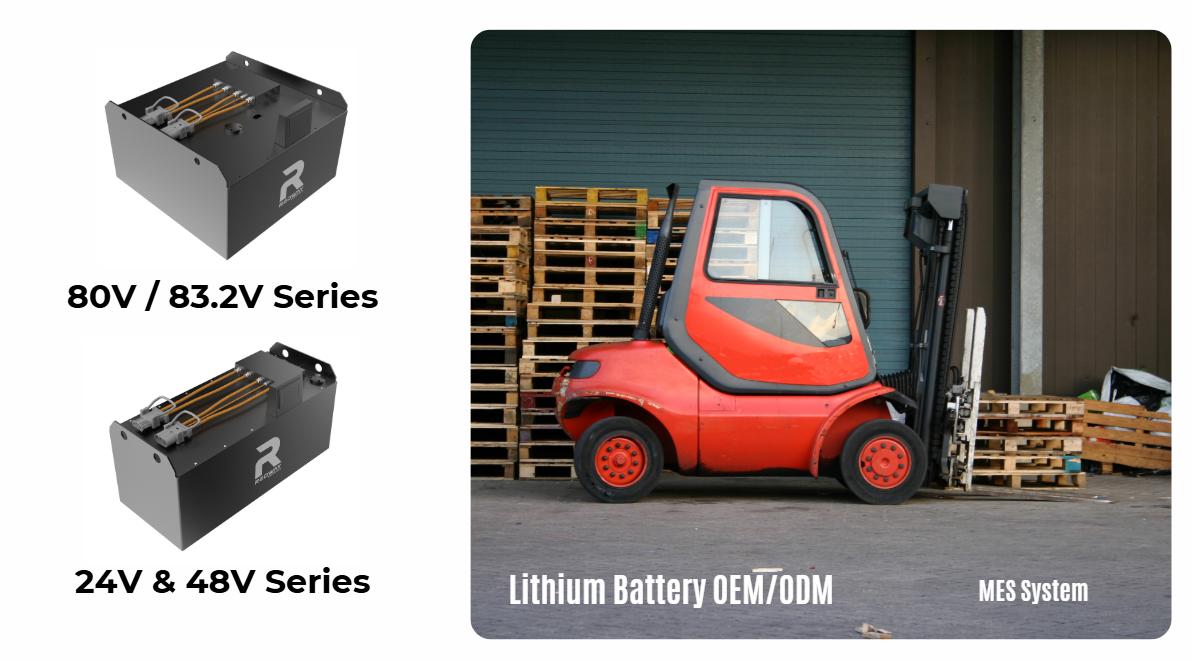
How Is the Industry Shifting Towards Lithium-Ion Batteries?
The material handling industry is experiencing a significant shift as businesses increasingly transition from traditional lead-acid batteries to lithium-ion alternatives. This change is driven by the numerous advantages that lithium-ion technology offers, including longer lifespans and faster charging capabilities.
What Are the Key Benefits of Lithium-Ion Batteries?
Lithium-ion batteries offer high energy density, lightweight design, and long lifespan, lasting up to ten times longer than lead-acid batteries. They charge quickly and have low self-discharge rates, making them efficient for various applications. Their advanced technology also ensures safety and thermal stability, enhancing overall performance.
Lithium-ion batteries provide several benefits over lead-acid batteries:
- Longer Lifespan: Lithium-ion batteries can last up to 3,000–5,000 cycles, significantly outpacing lead-acid batteries, which typically last around 1,500 cycles with proper maintenance.
- Faster Charging: These batteries can charge to 80% capacity in under an hour, compared to lead-acid batteries that often require 8–12 hours for a full charge.
- Reduced Downtime: With opportunities for quick recharging during breaks, lithium-ion batteries allow for continuous operation without the need for battery swaps or lengthy charging periods.
Why Are Businesses Choosing Lithium-Ion Over Lead-Acid?
Businesses prefer lithium-ion batteries due to their longer lifespan, faster charging times, and lower maintenance requirements compared to lead-acid batteries. These advantages reduce operational costs and downtime, allowing for improved productivity. Additionally, lithium-ion batteries are more energy-efficient and environmentally friendly, aligning with sustainability goals.
Also read:
How Do Duracell and Interstate Car Batteries Compare?
What Are the Best Car Batteries for Dodge Vehicles?
How Is the Industry Shifting Towards Lithium-Ion Batteries?
What You Need to Know About Club Car Batteries
How Do Lithium-Ion Batteries Improve Productivity?
Lithium-ion batteries enhance productivity by offering rapid charging capabilities, minimizing downtime during operations. Their long lifespan reduces the frequency of replacements, ensuring consistent power supply. Furthermore, their lightweight design allows for easier handling and installation in various applications, increasing overall operational efficiency.
What Environmental Benefits Do Lithium-Ion Batteries Offer?
Lithium-ion batteries provide significant environmental benefits by producing zero harmful emissions during use. Their high energy efficiency contributes to lower energy consumption and reduced carbon footprint. Additionally, they can be recycled effectively, promoting a circular economy and minimizing waste compared to traditional battery technologies.
Battery Swapping Just Got a Major Turbo Boost!
Battery swapping technology has advanced significantly, allowing electric vehicle users to exchange depleted batteries for fully charged ones in minutes. This innovation reduces downtime and alleviates range anxiety, making EVs more convenient. Companies are investing in standardized battery designs to enhance interoperability across different vehicle models, promoting widespread adoption of this efficient solution.
Expert Views
The shift towards lithium-ion batteries in material handling is not just a trend; it’s a necessary evolution. Businesses are realizing that investing in lithium technology leads to greater efficiency and lower long-term costs. As we move forward, this transition will play a crucial role in enhancing productivity while also addressing environmental concerns.
Conclusion
The marked transition from lead-acid to lithium-ion batteries in the material handling industry signifies a pivotal moment for businesses seeking enhanced productivity and sustainability. With advantages such as longer lifespans, faster charging times, and reduced maintenance costs, lithium-ion technology is becoming the preferred choice for modern operations. As this shift continues, stakeholders can expect significant improvements in efficiency and environmental impact across the sector.
Know More
What are the Key Differences Between Lithium and Lithium-Ion Batteries?
How Rack-Mounted Lithium Batteries are Revolutionizing Energy Storage Solutions
How Rack-Mounted Battery Suppliers are Transforming Energy Storage Solutions
How Is the Industry Shifting Towards Lithium-Ion Batteries?
